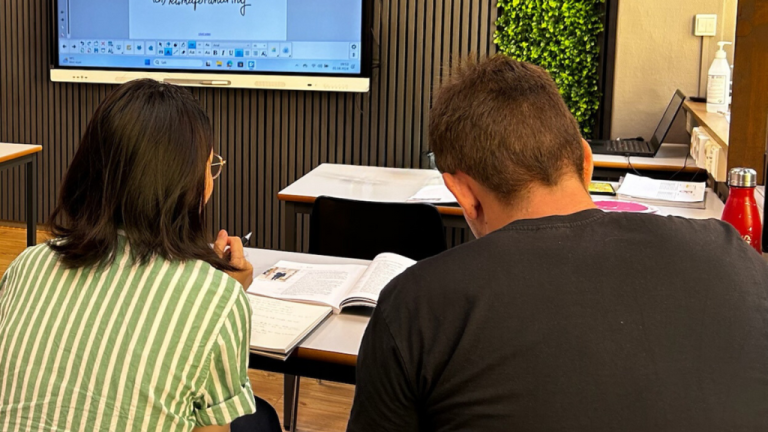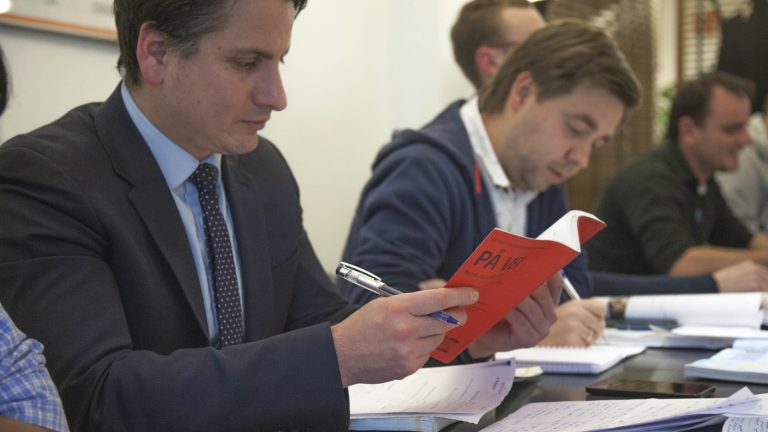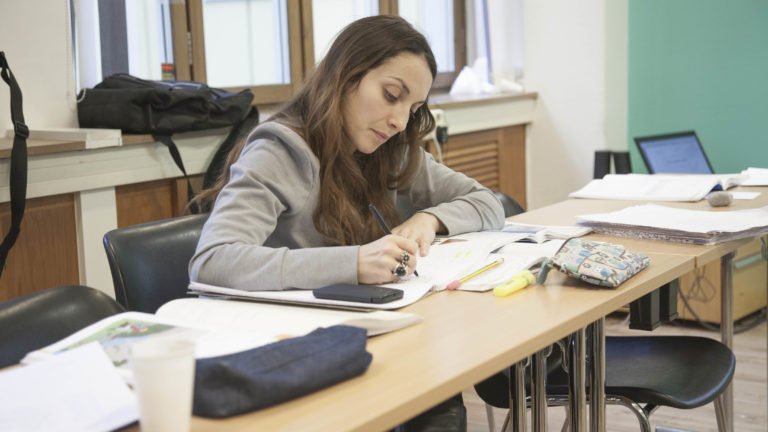Norwegian Family Relations Explained
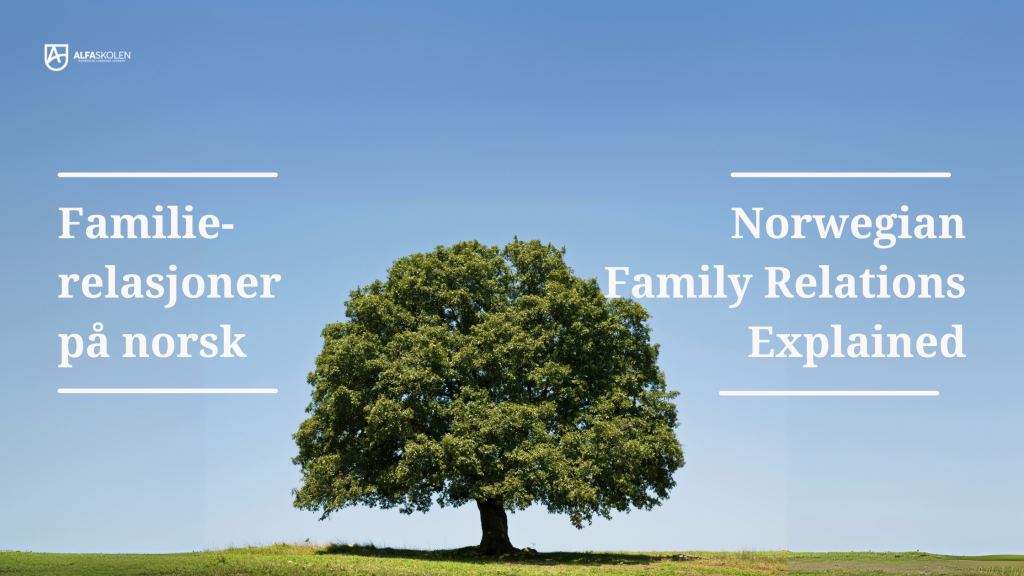
Importance of Family in Norway
Family holds a central place in Norwegian society, emphasizing strong bonds and support systems. Historically, Norwegian families have been tightly knit, often working together in agricultural settings and small communities. In modern times, while family structures have diversified, the importance of maintaining close family ties remains a cultural cornerstone.
For newcomers learning Norwegian, understanding family relations and the associated vocabulary is essential. This knowledge not only helps in grasping the language but also in integrating into Norwegian culture.
Key Family Terms in Norwegian
Understanding family relations in Norway requires familiarity with key terms:
Immediate Family (Nærmeste familie)
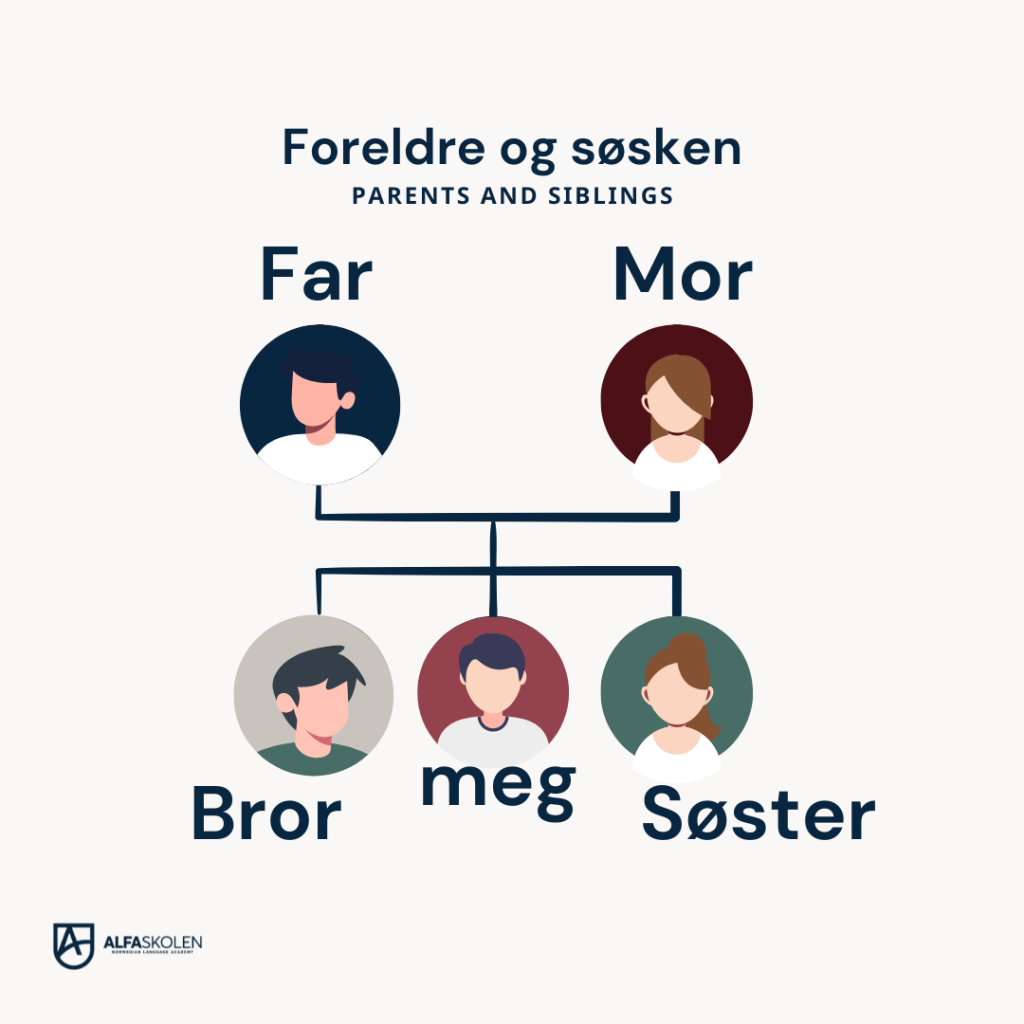
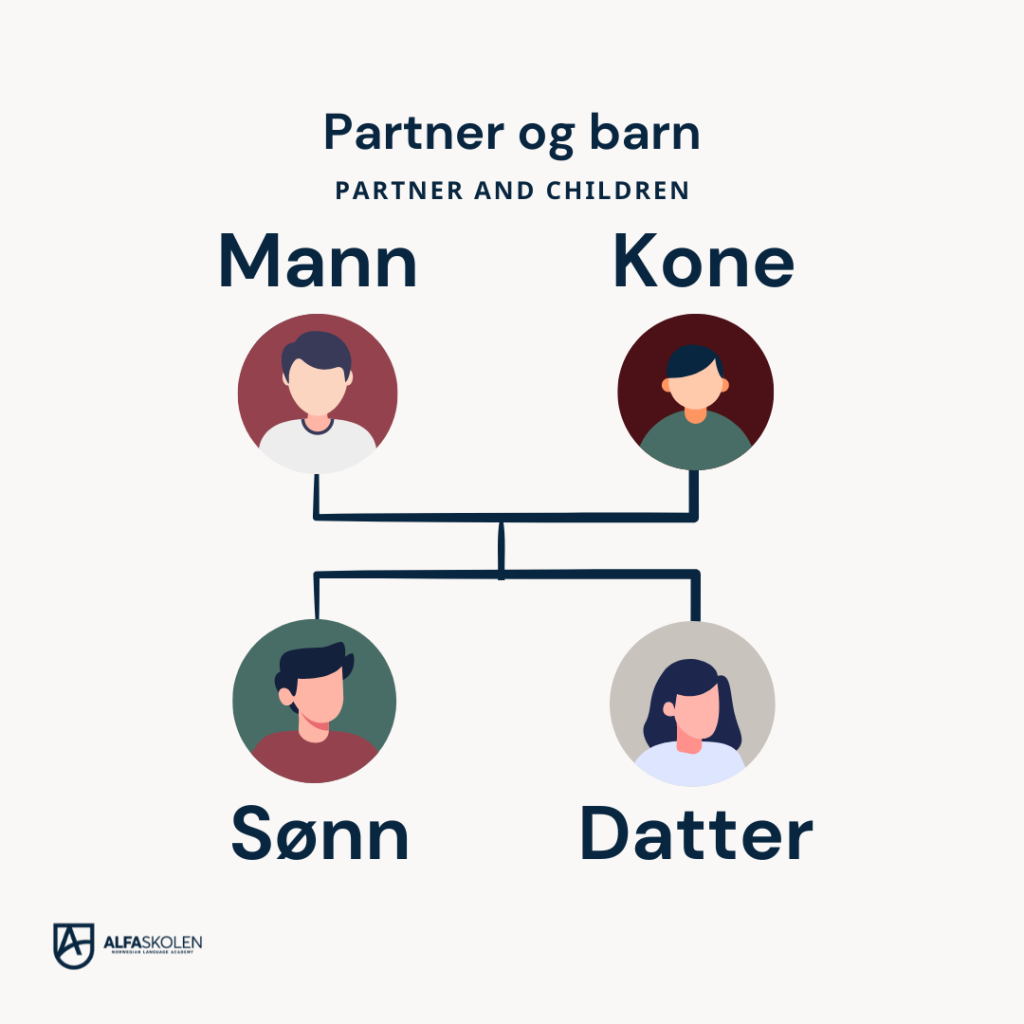
The immediate family, kjernefamilien, is typically your household: parents, siblings, partner, and children. In many modern families you will also find step parents, half siblings, and step siblings.
- Stemor: The new wife/partner of one of your parents. Not a biological parent.
- Stefar: The new husband/partner of one of your parents. Not a biological parent.
- Stesøster/stebror: The children of your parents’ new partner, not biologically related.
- Halvsøster/halvbror: You share one of the same parents, biological or adopted.
Extended Family (Utvidet familie)
Your extended family, storfamilien, consists of your grandparents, aunts and uncles, cousins, nieces and nephews.
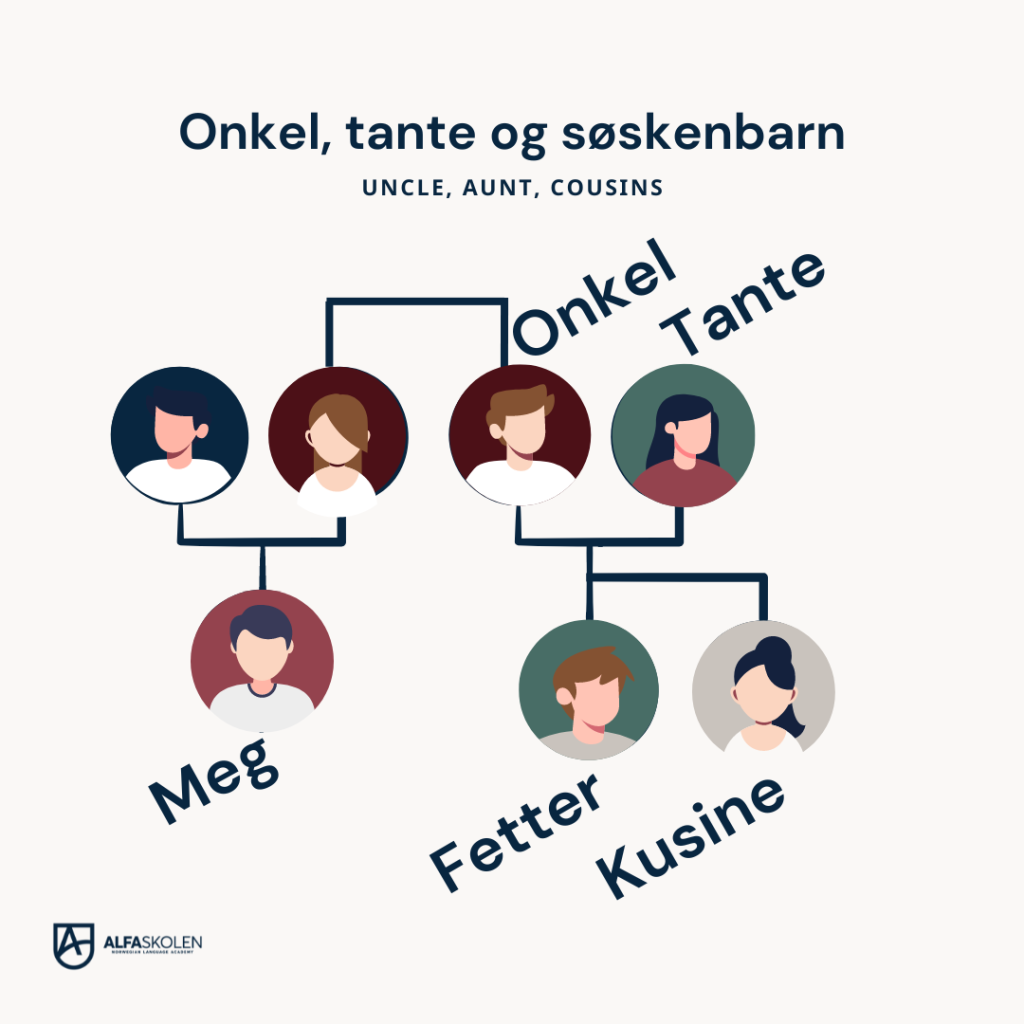
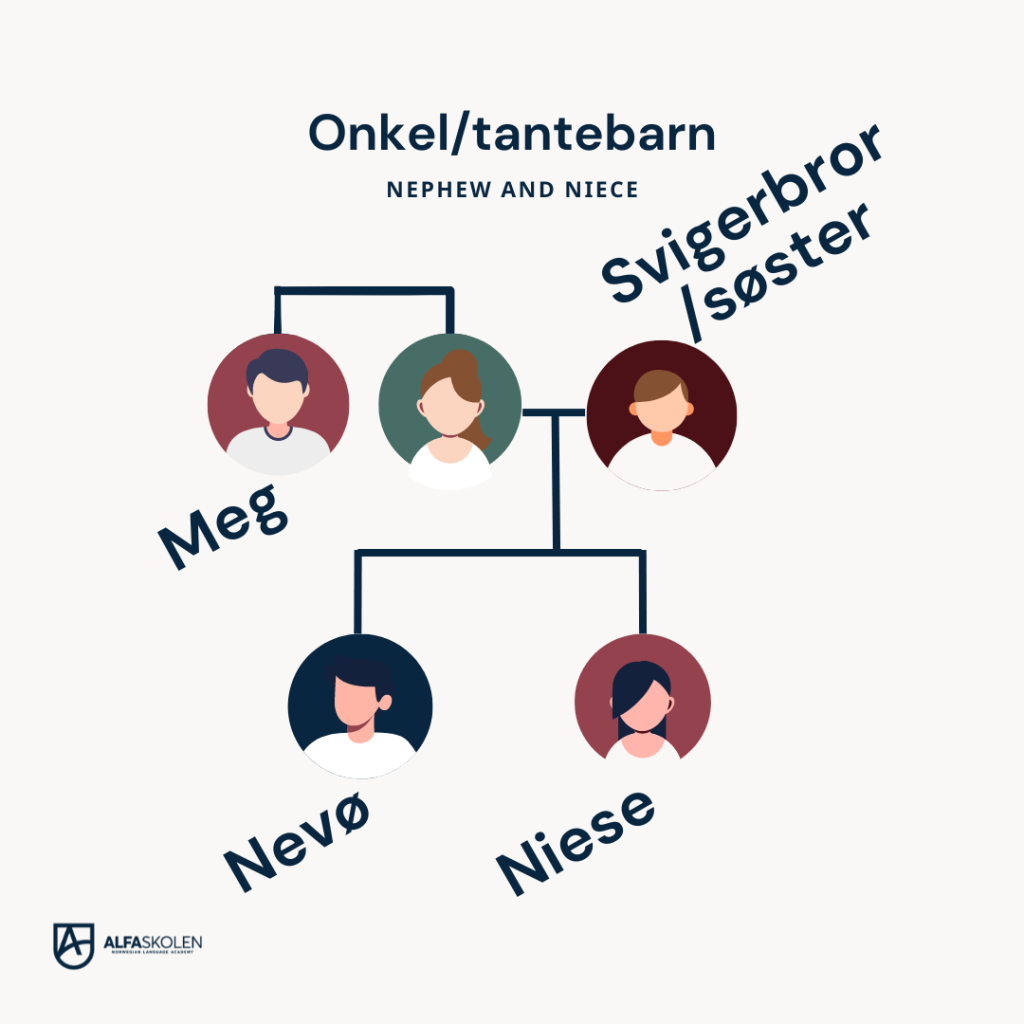
The Role of Grandparents
In Norwegian families, grandparents play a significant role in the upbringing of grandchildren. They are often deeply involved in their lives and provide additional support to parents. It is not typical for Norwegian households to consist of more than two generations (parents and children), but many choose to live close to their parents long into adulthood.
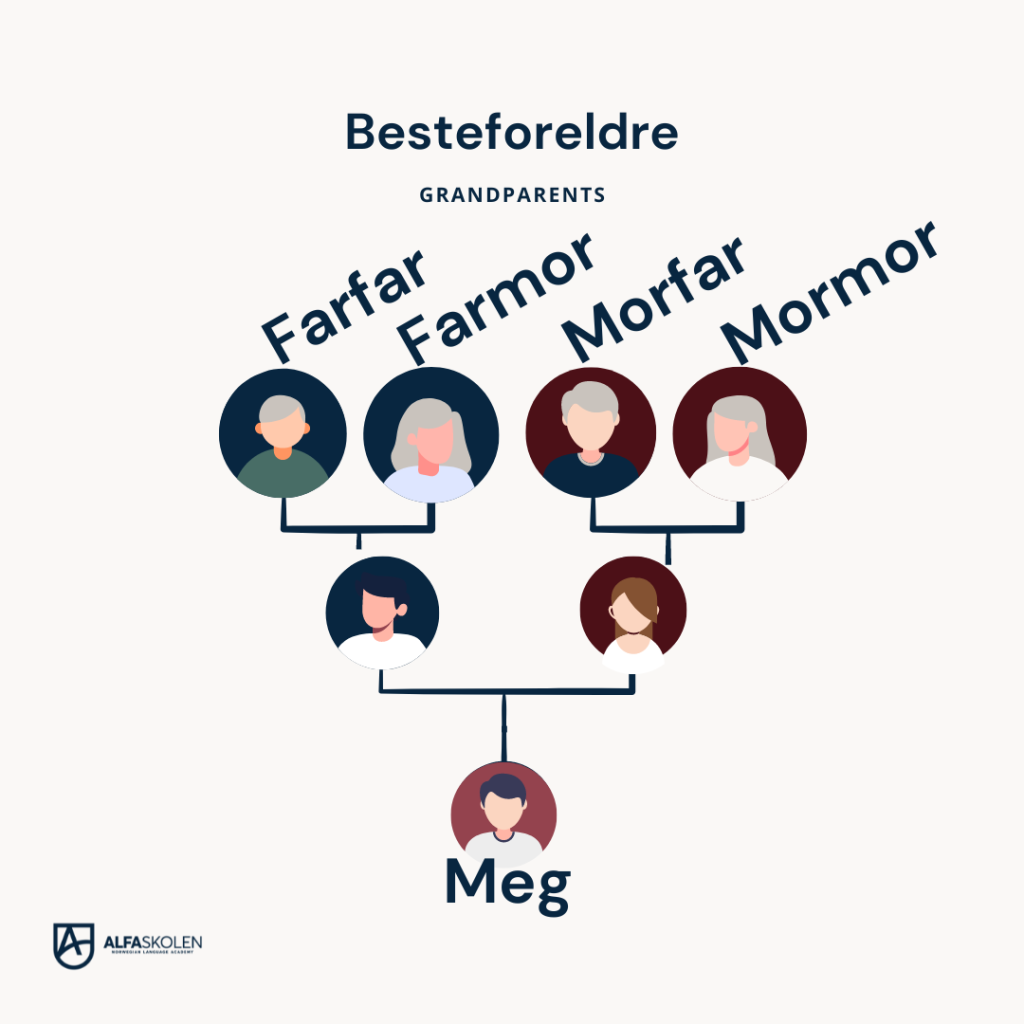
Farmor, Farfar (father’s parents)
- Farmor: Grandmother on the father’s side
- Farfar: Grandfather on the father’s side
Mormor, Morfar (mother’s parents)
- Mormor: Grandmother on the mother’s side
- Morfar: Grandfather on the mother’s side
When do Norwegian families come together?
Norwegian families cherish their traditions and often engage in activities that strengthen family bonds. How often extended families see each other varies of course, but we’ve listed some celebrations or gatherings that are traditionally considered family occations. Understanding these traditions can provide insight into Norwegian culture.
Christmas
A major holiday celebrated with family gatherings, traditional foods, and gift-giving. December 23rd (lille julaften) till the 26th (andre juledag) is typically reserved for spending time with your family. Read more about Norwegian Christmas traditions here.
Birthday Parties
Birthday parties are special occasions in Norwegian families, often celebrated with family and friends. Children’s birthdays typically include games, cake, and gifts. Adults also celebrate with gatherings and meals.
Christenings and confirmations
While the Norwegian society is becoming increasingly secular (non-religious), many of the traditions are still upheld. Christenings and confirmations can be held in the Christian tradition, in other religions or without any religious affiliations. These events are usually attended by extended family and friends and followed by a celebratory meal.
Weddings
Weddings are important cultural and family events in Norway. They often include traditional customs, such as wearing the bunad (national costume), and are celebrated with large gatherings, meals, and dancing.
Funerals
Sadly, funerals are also a time when families gather to mourn the loss of a loved one. This is typically a quiet affair consisting of a ceremony and following reception.
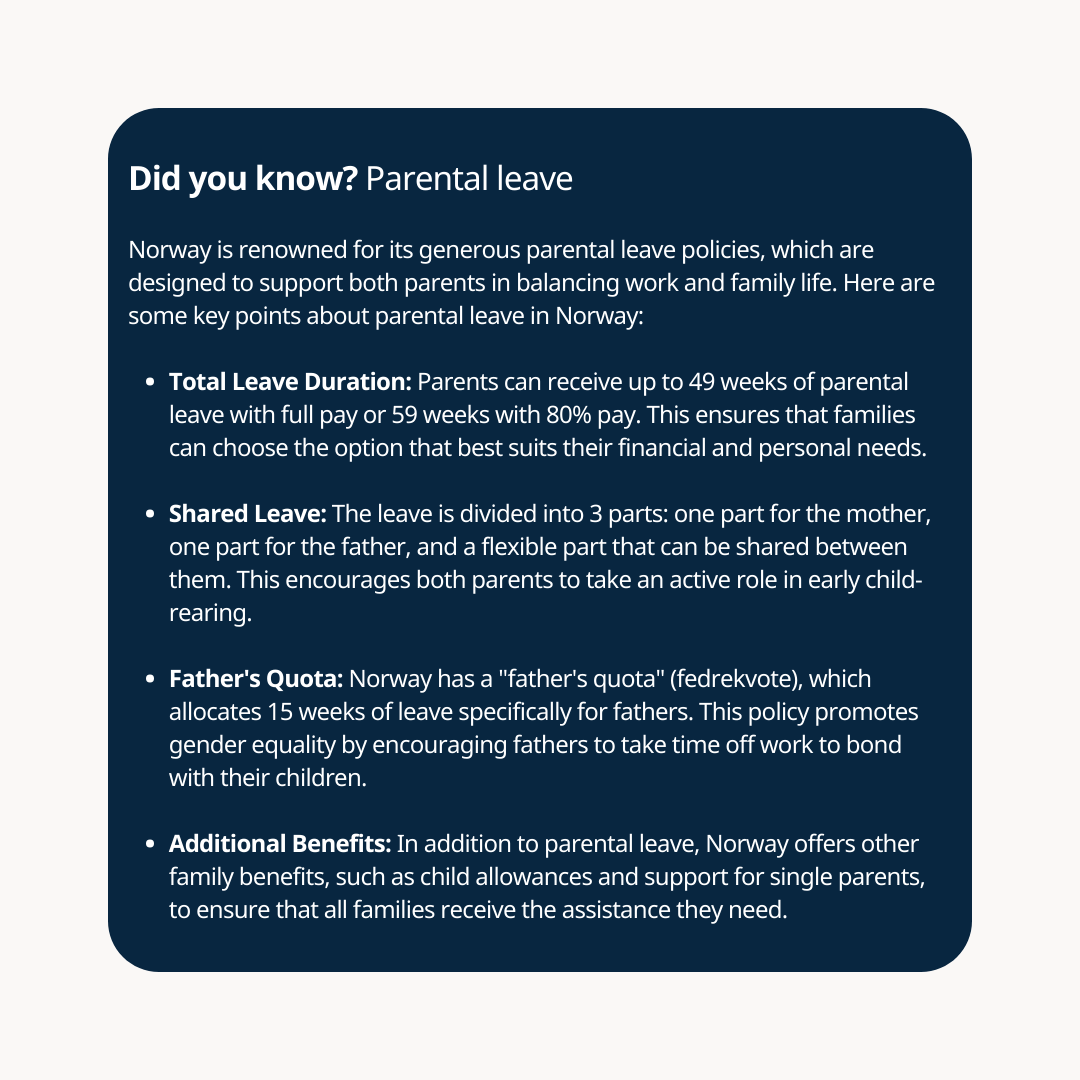
Modern Family Dynamics in Norway
Family structures in Norway have evolved over the years, reflecting broader social changes. While traditional family models are still prevalent, modern family dynamics are increasingly diverse.
Single-parent families
Single-parent families are common in Norway, supported by comprehensive social policies that provide financial aid and resources to ensure that single parents can effectively balance work and family life.
Same-sex parents
Norway is progressive in recognizing and supporting same-sex families. Same-sex couples have the right to marry, adopt children, and receive the same benefits and support as heterosexual families, promoting inclusivity and equality.
Resources for Families in Norway
Norwegian society offers various resources and support systems for families, ensuring their well-being and stability. The Norwegian government provides extensive support to families through policies such as parental leave, child benefits, and healthcare services. These measures help families manage financial pressures and focus on raising their children. We’ve collected some useful links for anyone interested in topics related to raising a family in Norway.
Understanding Norwegian family relations is crucial for anyone looking to integrate into Norwegian society. By learning the key terms and cultural practices related to family life, newcomers can deepen their connections and enhance their communication skills. At Alfaskolen, we provide comprehensive language courses that not only teach the Norwegian language but also immerse you in the cultural nuances that make Norway unique. Whether you’re navigating family gatherings or celebrating local traditions, mastering these aspects of Norwegian life will enrich your experience and help you feel more at home. Join us at Alfaskolen to begin your journey towards fluency and cultural fluency in Norway.
Tags:
